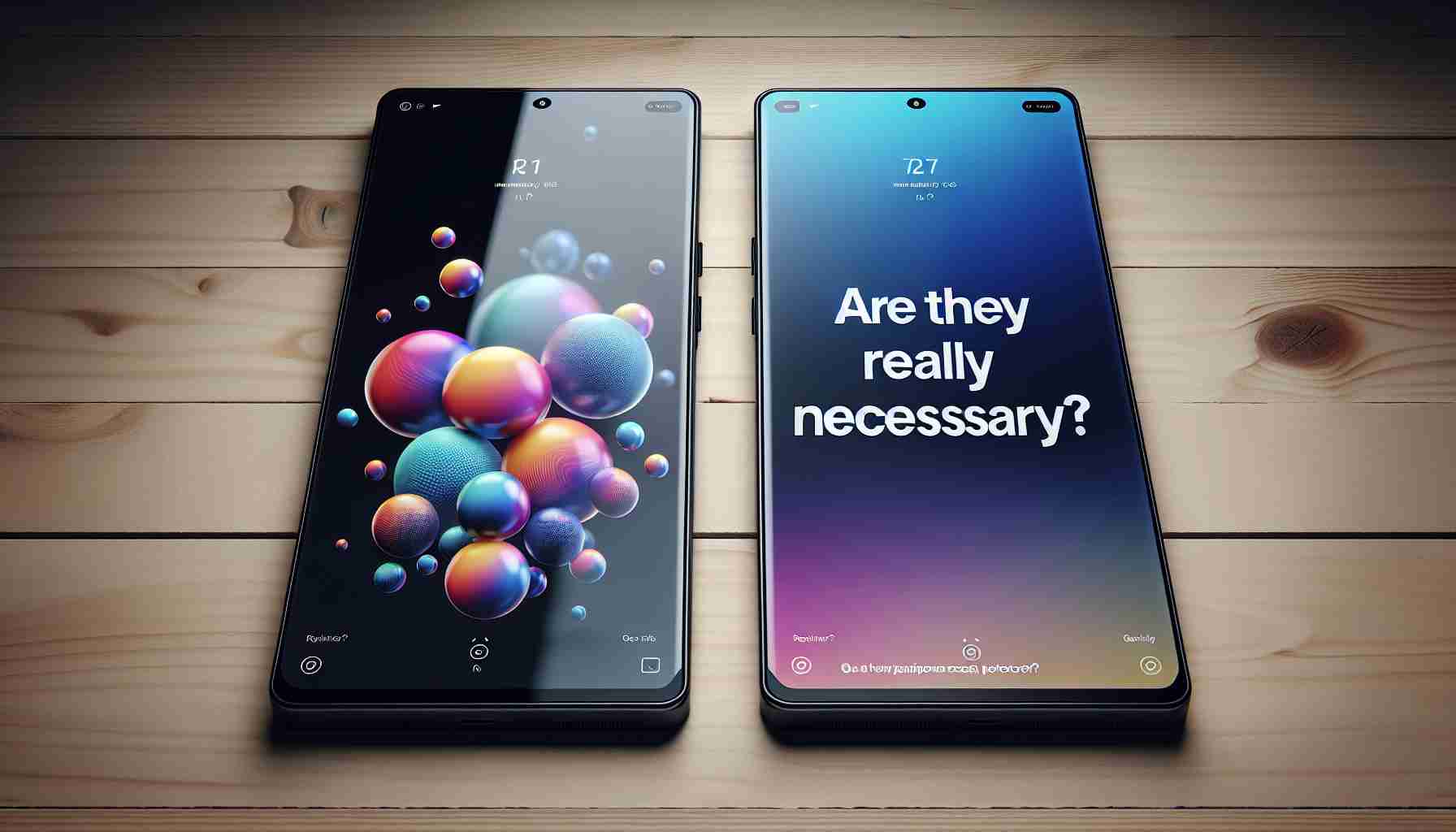
New Smartphone Protection Trend
Modern screen protectors with UV glue are gaining popularity recently, but are they as safe as they claim to be? Let’s explore the potential risks and benefits associated with these innovative screen protectors.
Unforeseen Consequences
One user’s experience on Reddit revealed the dangers of UV-glue screen protectors. When attempting to apply the protector to a top-of-the-line Samsung smartphone, the adhesive spread to the volume button cavity, rendering the user unable to adjust the device’s sound settings with ease.
Unexpected Mishaps
To make matters worse, the adhesive seeped into the stylus compartment, causing screen distortions and rendering the S Pen functionality erratic. These incidents highlight the unpredictable nature of using UV-glue screen protectors on high-end smartphones.
Beyond Aesthetics
While Samsung smartphones boast top-of-the-line water and dust resistance, the infiltration of adhesive into the device’s body poses a significant threat. Warranty claims and device replacements are unlikely in such scenarios.
Forewarned is Forearmed
Aside from functionality issues, experts caution that UV-glue protectors may lead to fingerprint sensor malfunctions, skin allergies, button jamming, and more. Vigilance is key to address these potential setbacks.
Future of Screen Protection
Fortunately, resolving fingerprint sensor issues is relatively straightforward by re-registering fingerprints. However, allergic reactions pose a more significant challenge, requiring prompt action upon symptoms’ onset.
Making Informed Choices
Despite the drawbacks, UV-glue protectors remain essential for curved screen smartphone owners. Users must weigh the pros and cons before opting for a device with such a display. As technology evolves, the necessity for UV protectors may diminish in the coming years as flat screens become the norm.
Additional Insights on Modern Smartphone Screen Protectors
In the realm of modern smartphone screen protection, there are several crucial questions that users often ponder before deciding on the necessity of screen protectors. Here are some important aspects to consider:
1. Are Tempered Glass Screen Protectors a Better Alternative?
While UV-glue screen protectors offer a seamless fit, tempered glass protectors provide robust protection against scratches and impacts. The rigidity of tempered glass can effectively shield the screen from accidental drops and sharp objects, ensuring enhanced durability.
2. What Impact Does a Screen Protector Have on Display Quality?
One concern that users may have is whether screen protectors affect the clarity and touch sensitivity of the display. In most cases, high-quality screen protectors maintain the original display quality while offering an additional layer of defense against daily wear and tear.
3. How Does Installation Difficulty Vary Among Different Protector Types?
UV-glue screen protectors may require precise application due to the nature of the adhesive, as highlighted in previous incidents. On the other hand, traditional film or tempered glass protectors often offer more straightforward installation processes, making them user-friendly options for those concerned about potential mishaps during application.
Advantages and Disadvantages of Modern Smartphone Screen Protectors:
Advantages:
– Enhanced Protection: Screen protectors can safeguard the phone screen from scratches, scuffs, and minor impacts, extending the lifespan of the device.
– Maintenance of Resale Value: By keeping the screen in pristine condition, screen protectors can help maintain the device’s resale value over time.
– Custom Fit: Modern screen protectors are designed to fit specific smartphone models, ensuring a precise fit without obstructing sensors or ports.
Disadvantages:
– Installation Risks: Certain types of screen protectors, such as UV-glue variants, may pose installation challenges that could potentially lead to device damage or functionality issues.
– Compatibility Concerns: Users must ensure that the chosen screen protector is compatible with their device model to avoid unintended consequences like interference with sensors or buttons.
– Cost Factor: While screen protectors can be cost-effective compared to screen repairs, premium options such as tempered glass protectors may come at a higher price point.
In conclusion, the choice of whether to use a screen protector ultimately depends on individual preferences and the level of protection desired for the smartphone. As technology advances, future innovations in screen materials and device durability may influence the necessity of screen protectors in the long run.
Related Links:
– Digital Trends
– TechRadar
